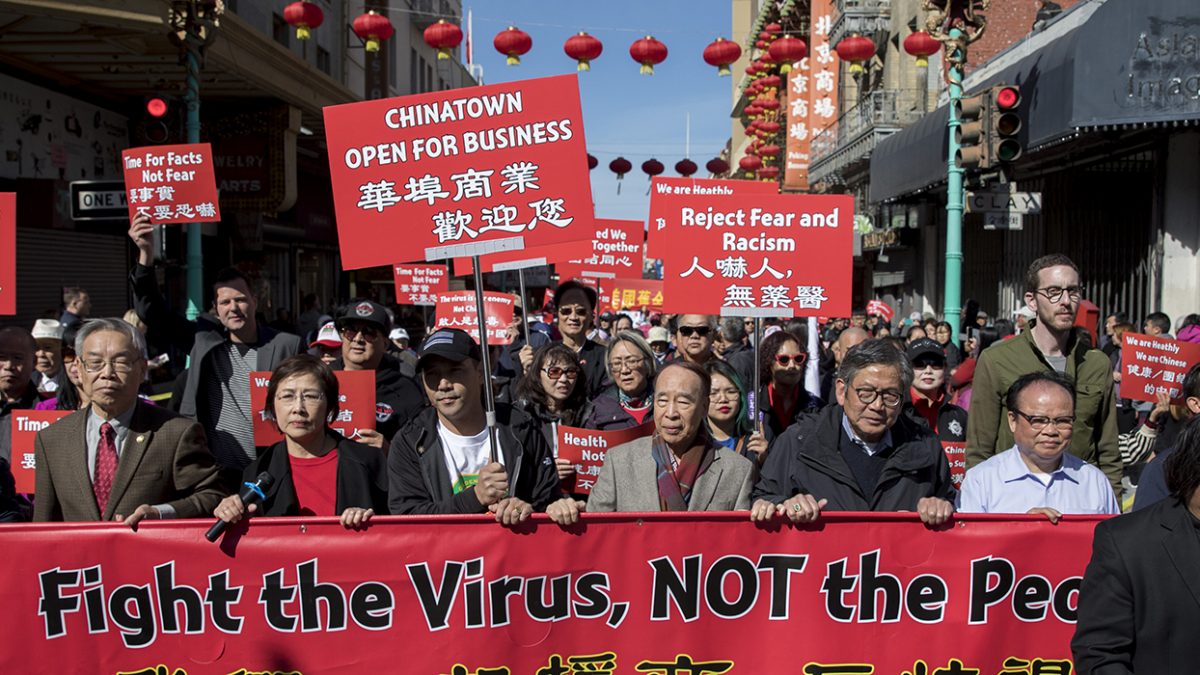-
Best Australian Pokies Best Payout
Play Free 777 Pokies Online
What Are the Best Australian Pokies to Win Big On
What Are the Best Online Pokies with Low Minimum Deposits for Real Money in Australia
New Australian Pokies Accepting PayID
What Are the Best Strategies to Win in Online Pokies with Bonus Rounds in Australia
Tips for Winning Top Australian Pokies
What Online Casinos Offer Free Play Pokies with Welcome Bonuses in Australia
Australian Slot Games
Payout Ratio Pokies with Welcome Bonus

SAN FRANCISCO CA - FEBRUARY 29: Hundreds of Chinatown residents along with local and state officials take to the streets protest against racism against the Chinese community during a march down Grant Avenue from Chinatown's Portsmouth Square to Union Square in San Francisco, Calif. Saturday, February 29, 2020. Racism against the Chinese community has increased since the discovery of the first coronavirus outbreak in Wuhan, China has spread globally. (Jessica Christian/The San Francisco Chronicle via Getty Images)
Asian Americans Confront Growing Backlash by Leung
Asian Americans Confront Growing Backlash by Leung
The Model Minority Myth: Asian Americans Confront Growing Backlash (Leung)
Summarize the “Model Minority Myth”
In 1987 Leung suggested that there was a growing backlash against Asian Americans. What are some contemporary examples of this phenomenon?
For individual Asian Americans, what difficulties might be cause by being stereotyped as a ‘model minority’?
What connections do you see between Leung’s article and the rise in discrimination against Asian Americans during the Covid-19 pandemic?
Asian American mothers confront multiple crises of pandemic, anti-Asian hate and caregiving
In memory of the Atlanta massage spas shootings on March 16, 2021, that killed eight people, including six Asian women, communities around the country gathered a year later to mourn and demand responses to violence against Asian Americans, especially women who work in service industries.
In addition to being exposed to risks at their workplaces, Asian American women who care for children and elders are especially vulnerable to anti-Asian violence. As sociologists and scholars of gender, race, immigration and Asian American studies, we focus on the particular challenges facing Asian American mothers.
Though they face challenges similar to those faced by other mothers confronting the COVID-19 pandemic, Asian American women have the added burden of being seen as the cause of the virus and being disproportionately targeted by hostility and violence that such misconceptions bring on.
Spike in assaults
From March 2020 to December 2021, StopAAPIHate, a joint project between the Asian American Studies Department of San Francisco State University and two Asian American community organizations, collected reports of almost 11,000 incidents in the U.S. of anti-Asian hate, ranging from spitting to verbal abuse to physical attacks. Women reported 62% of these incidents.
The spike in violence has been reflected in news headlines that have appeared since the World Health Organization declared the pandemic on March 11, 2020.
National Public Radio proclaimed, “There’s been an alarming spike in violence against women of Asian descent in the U.S.” NBC also reported, “‘Nowhere is safe’: Asian women reflect on brutal New York City killings.”
Over the same time period, other news headlines reflected the toll the pandemic took on mothers. A New York Times headline, for instance, read “The Primal Scream: America’s Mothers Are in Crisis.” Another in USA Today read “We sacrificed working moms to survive the pandemic.”
For Asian American mothers, what appear to be distinct headlines are inextricably connected in daily decisions on whether to send children to school, accompany parents on the subway, go to work or simply leave the house.
Heightened risks
“There’s just a real sense of fear,” said Jeanie Tung, director of business development and workforce partnerships at Henry Street Settlement. The organization, located near New York City’s Chinatown, serves Manhattan’s Lower East Side residents and other New Yorkers through social services, arts and health care programs.
During an interview, Tung said she has heard from Asian American mothers that their concerns go beyond the lack of child care. “It’s more like, ‘I don’t want to work because I don’t want to risk my life,’” said Tung.
The shootings in Atlanta-area massage spas exposed the heightened vulnerabilities of Asian American women who work in high-contact service industries, such as nail salons, restaurants, delivery, health care, caregiving, hospitality and, especially, massage and sex work.
Attachments
